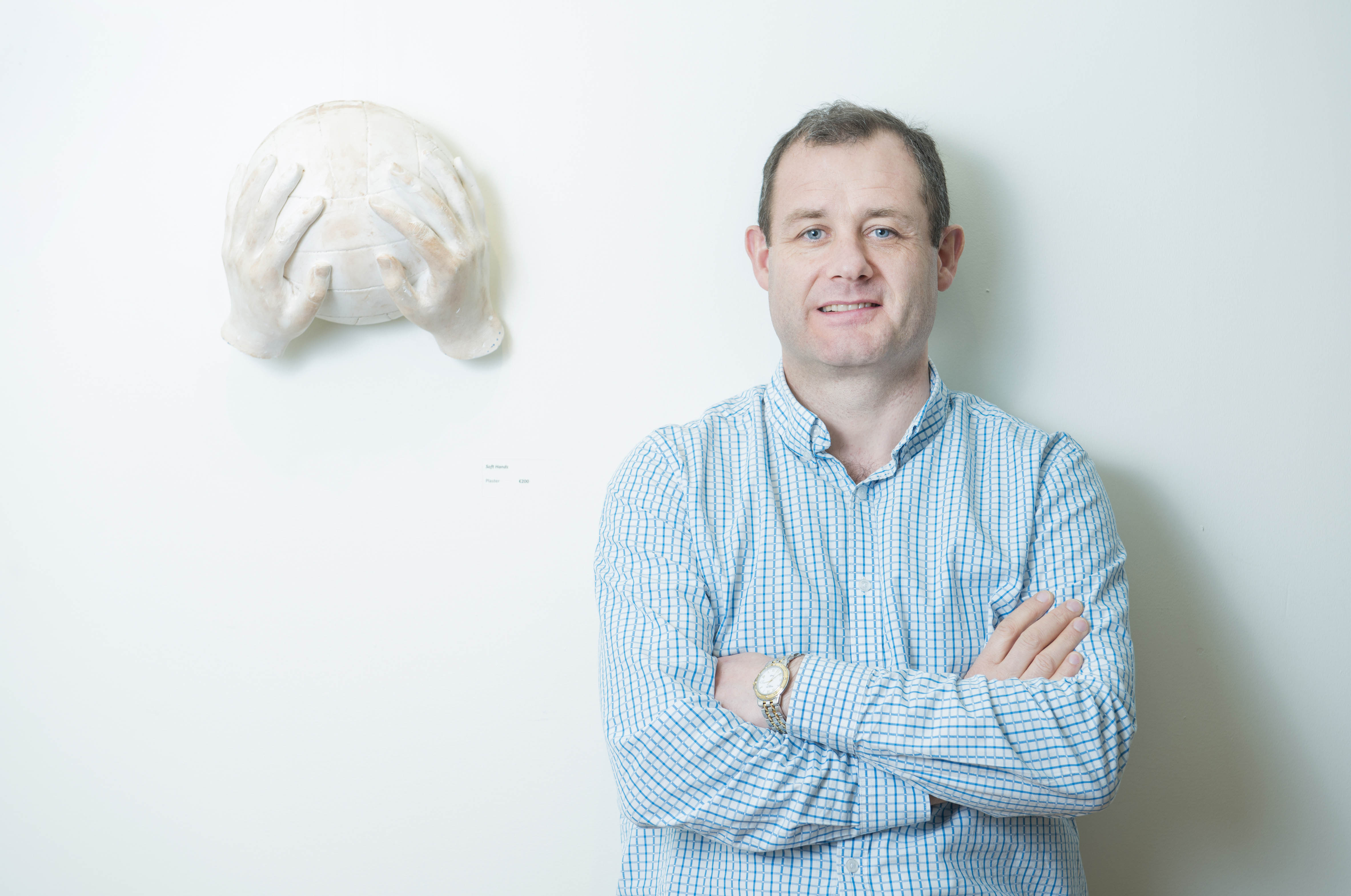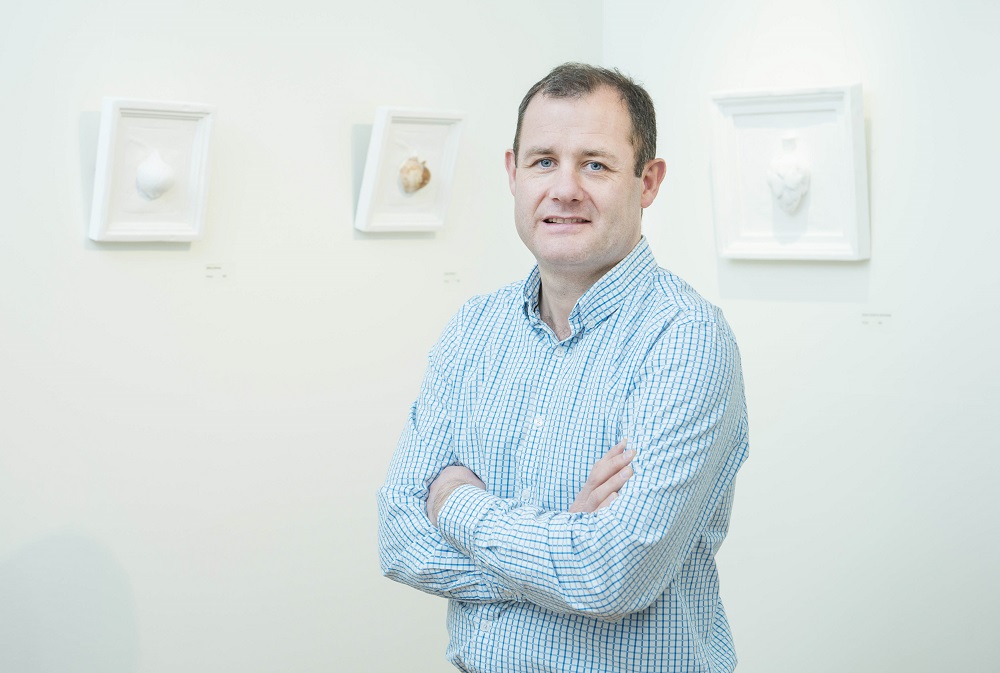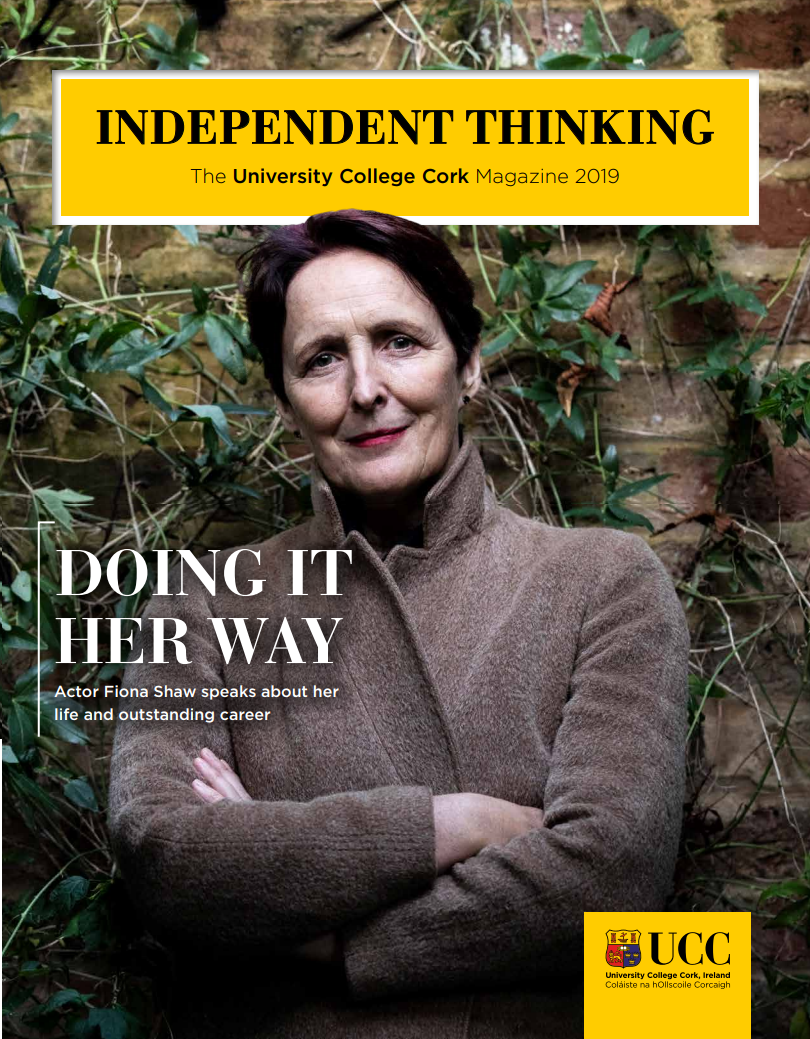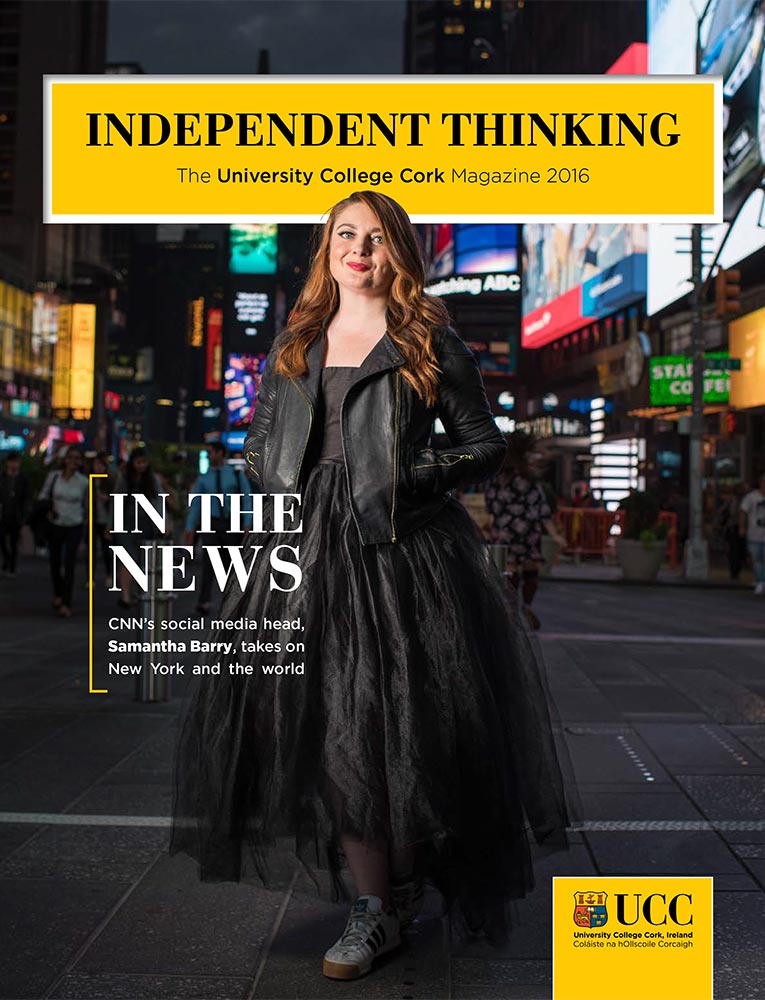Features
- Can Do, Will Do
Stefanie Preissner
- It’s not just a gut feeling
John Cryan & Ted Dinan
- Active citizen
Emily Duffy
- Leading the charge
Alan Hayes
- Gaeltacht adventures
Bliain Na Gaeilge
- Eachtraí sa Ghaeltacht
Bliain Na Gaeilge
- Don’t worry, bees happy
Fiona Edwards Murphy
- The times they are a-changin’
LGBT Staff Network
- Back to her roots
Maria Kirrane
- Shining a light
Mental Health in the Community
- Patrick’s call to nursing was no accident
Patrick Cotter
- A healthy separation, long overdue
Ivan Perry
- Woman of Steele
Susan Steele
Patrick’s call to nursing was no accident
The impact of our interactions with others stretches beyond the caring profession, to the wider community, says Patrick Cotter. An advanced nurse practitioner at the Emergency Department of CUH, Patrick was the first male nursing student at Cork’s South Infirmary/Victoria University Hospital, 27 years ago. He speaks to Jane Haynes about his vocation.

Twenty-seven years ago, Patrick Cotter was already a standout individual – paving the way, as he did, for other men, as the first male nursing student at Cork’s South Infirmary/Victoria University Hospital (SIVUH).
Since then, he has garnered a slew of academic achievements in his career, but what matters most to him is the on-the-ground caring and respectful connection between himself and any individual he meets.
“I’ve been very lucky in my career, and as I said in my commencement speech at a graduation ceremony I was invited to, luck is mystical. I think that if you’re prepared when an opportunity comes around, then you can avail of that opportunity.”
Such opportunity first began to knock for Patrick at the tender age of 13, when he got involved with St John Ambulance; the experience nurtured his interest in caring for people, and he subsequently delved into voluntary work in the A&E department of SIVUH.
When the time came to apply for college courses during Leaving Certificate year, Patrick chose the less traditional route for a student of an all-boys secondary school, taking that ground-breaking step to become the first male nursing student at SIVUH.
This was only the beginning of his trailblazing ways, however; he went on to become only the second male to train in midwifery in Cork. He was also in the first programme for nurse prescribing, and became the first advanced nurse practitioner in the Southern Health Board.
Patrick is certainly a man you want around in an emergency, but that’s only partly related to the ever-increasing collection of letters after his name; he is driven by a thirst for knowledge and an inherent vocation to care.
“For me, the biggest opportunity is to care,” he says. “The more I’ve learned, the more prepared I’ve been for that – and that’s why I feel I’m really lucky. People talk about the stress of dealing with emergency situations, but I feel I’m very privileged that people have allowed me in to what has been a very delicate situation – be it a mental health breakdown or bereavement, or a serious injury.”
When Patrick, who has worked in A&E at Cork University Hospital for 13 years, describes his experience in this way, it becomes abundantly clear why individuals treated by him decades ago still recognise him; speak fondly of him; introduce themselves to him – even if he can’t quite get his head around it himself.
The key is to not let it overwhelm you, and to understand that this is part of living and dying, and your role here is to help. It’s not about you; it’s about the people you’re dealing with.
It takes a certain kind of person to enter into this profession, to dedicate their life to caring for others and to put others’ experiences first. Throw in crazy hours, a staff shortage of crisis proportions and having to always ‘expect the unexpected’, and nurses are really up against it.
While Patrick acknowledges the challenges of his line of work, he admits that he has been able to use the ‘baggage of 27 years of nursing’ to his advantage.
“There have been instances throughout my career that I still carry with me – that come back to mind if I’m in a similar situation. Funnily, the influence you have in the situation, and how you act in it, has a longer-lasting effect on the people who are on the other side of it,” he muses.
“But the key is to not let it overwhelm you, and to understand that this is part of living and dying, and your role here is to help. It’s not about you; it’s about the people you’re dealing with. And once you keep it about the people you’re dealing with, then the bit about you generally comes afterwards.”
So, what happens when ‘afterwards’ comes around? How do you go from the heroics and exhaustion, the highs and crushing lows of the emergency room, back into normality?
As a student, having co-founded UCC’s Nursoc and participated in hurling, football, St John’s, CASA and the cub scouts, it’s no surprise that his downtime revolves around community activity and helping others.
“The more I was sucked into my career, the less I did outside of work – and that was something that was troubling me,” he admits. “I’m married, I have three kids and once their activities started, then I started getting more involved in those, and then getting involved in the community in a broader sense.”

With son David and daughter Hannah heavily involved in their local hurling and Gaelic football clubs for the past number of years, Patrick has delved into coaching – and it’s a role that he takes just as seriously as his work.
“Even coaching seven-year-olds, six-year-olds, and five-year-olds, you’re very aware of the impact you’re having on them,” he says. “You might give them a bit of praise, and you meet the parent in the street and they say to you, ‘Whatever you said to him the last day, he’s walking on air since.’
“And it goes back to that condition of being positive, constantly being respectful, no matter what age the person or the learner is, and trying to move them on and develop them at the same time.”
Patrick takes to the role of mentor as naturally and with as much passion as he does that of a medical professional; he brings these qualities also to his role as lecturer in Emergency Nursing at UCC’s School of Nursing and Midwifery.
He says it is an honour to help mould the minds of the next generation of fearless nurses: “From an educational viewpoint – and that’s not just education in the university, it’s education in clinical practice, in everyday life – you have a huge influence on people,” he admits. “I realise this from reflecting on my own education and the people who influenced me strongly.”
He counts Professor Geraldine McCarthy – as well as a whole host of doctors, midwives, and patients he has treated – among these important influencers.
The key is to not let it overwhelm you, and to understand that this is part of living and dying, and your role here is to help.
“I think it’s an interaction – it’s not just me giving you the knowledge, and you taking it and going away. It’s me starting, you engaging, me making sure you engage, and then we work to fit your needs – and then, how that makes you a carer into the future,” he says.
“I do think educators have a huge role and responsibility. And certainly, if you don’t take that responsibility seriously, and if you don’t engage from your own point of view in thinking about how you’re moulding these people, then that has either a positive or a negative effect at the other end – in terms of patients. And those patients are our neighbours, our community, our relatives. It has a wider impact, certainly from a nursing perspective.”
Certainly it’s Patrick’s utter practical dedication to helping people that leaves such an impression on the listener of his true vocation, regardless of academic achievement.
And it stretches beyond, to all: “It all comes back to trying to do the best you can, and to give as much of yourself as you can to your students, your patients, your colleagues, your family,” he says. “There’s a huge satisfaction from that – from coming home at the end of a day’s work and saying, ‘I couldn’t have done any more’.”
Amid the chaos of emergency, how lucky are those to have Patrick fighting on their side.
For more information on studying at the School of Nursing and Midwifery, visit www.ucc.ie/en/nursingmidwifery.



